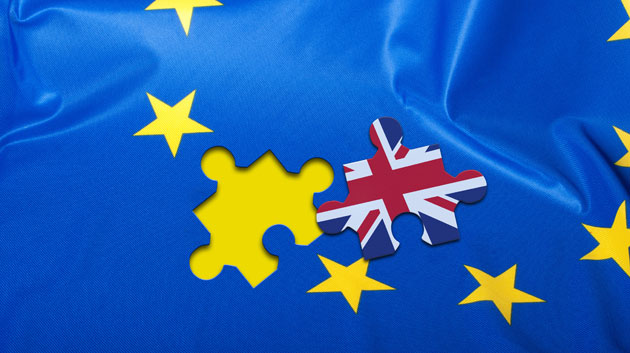Brexit Was Prophesied 26 Years Ago
Britain voted to withdraw from the EU. Without a doubt this will be a moment that will go captured in history.
A referendum was held on the 23rd to decide whether or not Britain should remain in the EU, and it became clear that the majority of British people voted to withdraw. With this, British Prime Minister David Cameron who had long been advocating remaining in the EU, announced his resignation.
The main arguments upheld by those British people favoring leaving the EU were to ‘regain sovereignty as a nation’ and that they ‘cannot accept any more immigrants’.
Those voting to remain in the EU argued that if they left they would no longer be able to enjoy the profits of the free transferring of people and things within the EU region. They also attested that since Britain plays the role of the EU’s financial centre, leaving would cause chaos in the economy both inside and outside of their country.
Brexit Was Prophesied in the 1990s
26 years ago, Master Ryuho Okawa, founder of Happy Science, had foretold Britain’s withdrawal from the EU. Below is a transcription of a lecture entitled “Crusade for the Future” given by Master Okawa in December 1990 (NOTE: EC refers to European Communities, organisations that were later dissolved into the EU).
“There is a currently a demand to unify the EC, in others words, to unify the currency, national borders, finance, and politics of Europe much like a unified country . . . this unification of the EC will definitely end in failure. Britain will be the first to leave it. Britain pulled down PM Thatcher who had opposed this unification of currency and politics. This trend was difficult to avoid, but as far as Thatcher is concerned, her spiritual instinct is correct. If Britain is consumed by the EC unification, the country will indubitably decline. This is without question.”
The EU is Robbing Sovereignty from its Countries
In the short-term, Brexit will cause the pound exchange rate to drop and the financial market will be thrown into chaos. This decision to leave, however, will begin to clearly reveal the problems inherent in the EU itself.
A very important factor of the structure of a country is ‘sovereignty’. Sovereignty is the authority to autonomously establish national policies and act accordingly. After joining the EU, however, the law in Britain was legislated by the European Commission based partly in Britain and partly in Brussels.
This decision to leave the EU was a result of Britain’s feeling of unrest and discontent towards the gradual loss of sovereignty.
Thatcher Was Against the EU
When Britain decided to join the EC, the then Prime Minister Margaret Thatcher was against it.
She gave a lecture at the College of Europe in Belgium in 1988, saying that the EC was an idealistic, controlling, centralization of power that robs each country of its freedom.
On April 9, 2013 just 18 hours after Thatcher’s death, Master Ryuho Okawa called upon her spirit and recorded the interview “Margaret Thatcher’s Miraculous Message” (available from [insert link?]).
The spirit of Thatcher said that the EU is a form of collectivism; and usually collectivism has some sort of central concept, but the EU has none.
Collectivism is a stance that is very close to socialism. It was a word used by pro-liberalism economist Friedrich Hayek, whom Thatcher greatly admired.
Indeed the current EU is like a band of powerless countries where poor nations such as Greece rely upon wealthy countries such as Britain, Germany and France. This relying upon each other is very much like socialism.
To unite over 20 countries with different languages and races without even a central concept, but through coercion, was impossible in the first place.
Mental Independence from Each Country in the EU
What each EU country needs now is Britain’s “Thatcherism”. Each country should have the will to earn money and make their own country better; each country should make the effort for advancement and realize prosperity in their region through healthy competition.


![Margaret Thatcher's Miraculous Message: An Interview with the Iron Lady 19 Hours After Her Death [Kindle Edition] By Ryuho Okawa](/files/2013/04/Book_Margaret_Thatcher_buy_from_amazon.jpg)

















